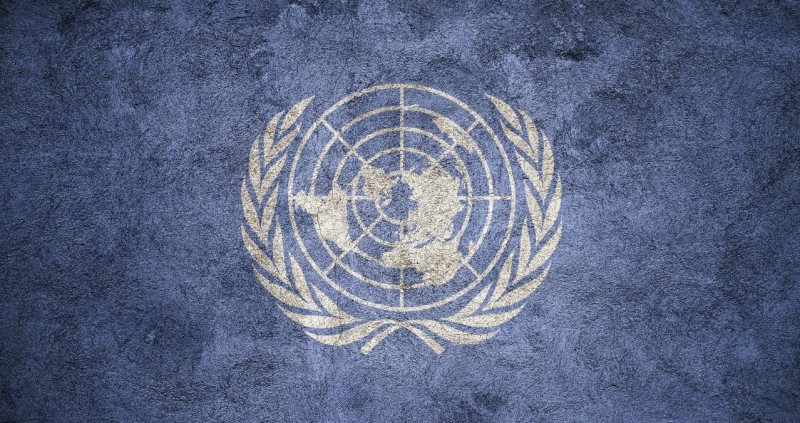
The United Nations (UN) stands as one of the most prominent international organizations, dedicated to maintaining global peace and promoting sustainable development. Founded on October 24, 1945, in the aftermath of World War II, the UN has evolved into a multifaceted entity, engaging in various roles and functions that strive to create a better world for all. This article will delve into the key functions and initiatives undertaken by the UN to foster international cooperation, humanitarian aid, peacekeeping efforts, and sustainable development.
The Birth of the United Nations
In the aftermath of World War II, the world realized the dire need for an organization that could prevent such catastrophic conflicts in the future. On June 26, 1945, the UN Charter was signed during the United Nations Conference on International Organization in San Francisco. The official establishment of the United Nations came into being on October 24, 1945, when the Charter was ratified by the majority of its founding members.
The Charter and Structure of the UN
The UN Charter serves as the foundation of the organization, outlining its principles, objectives, and structure. It consists of 111 articles, establishing six main organs: the General Assembly, the Security Council, the Economic and Social Council (ECOSOC), the Secretariat, the International Court of Justice (ICJ), and the Trusteeship Council.
The Roles and Objectives of the United Nations
Promotion of Peace and Security
One of the primary objectives of the UN is to maintain international peace and security. The Security Council, with its five permanent and ten non-permanent members, plays a pivotal role in responding to conflicts, initiating peacekeeping missions, and authorizing sanctions.
Protection of Human Rights
The UN is committed to safeguarding human rights worldwide. The Universal Declaration of Human Rights, adopted in 1948, serves as a fundamental document that outlines the rights and freedoms to which all individuals are entitled.
Humanitarian Assistance and Development
The UN engages in providing humanitarian aid and promoting sustainable development in regions facing crises and challenges. Various agencies under the UN umbrella work towards eradicating poverty, improving healthcare, and fostering education.
Environmental Sustainability
Recognizing the pressing global environmental issues, the UN addresses climate change, biodiversity loss, and environmental degradation through collaborative efforts among member states.
Conflict Resolution and Peacekeeping Missions
The UN conducts peacekeeping operations in regions affected by conflicts, aiming to stabilize and rebuild communities while facilitating dialogue between warring parties.
Key UN Agencies and Their Functions
The United Nations houses several specialized agencies that address specific global issues and challenges:
United Nations Educational, Scientific, and Cultural Organization (UNESCO)
UNESCO focuses on promoting education, protecting cultural heritage, and fostering scientific cooperation among nations.
United Nations Children's Fund (UNICEF)
UNICEF works tirelessly to provide humanitarian assistance to children in need, ensuring their rights and well-being are protected.
World Health Organization (WHO)
WHO plays a critical role in international public health, tackling diseases, and advocating for improved healthcare systems.
United Nations Development Programme (UNDP)
The UNDP strives to eradicate poverty, reduce inequalities, and empower communities to achieve sustainable development.
UN Efforts Towards Global Peace
Peacekeeping Operations
The UN deploys peacekeeping missions in conflict zones, seeking to create conditions for lasting peace and prevent a return to violence.
Disarmament Initiatives
The UN promotes arms control and disarmament to reduce the proliferation of weapons and enhance global security.
Diplomatic Mediation
The UN acts as a mediator in international disputes, facilitating negotiations between nations to find peaceful resolutions.
Preventive Diplomacy
The UN engages in preventive diplomacy to identify and address potential sources of conflict before they escalate.
UN's Involvement in Sustainable Development
The Sustainable Development Goals (SDGs)
The SDGs are a set of 17 global goals adopted by the UN to address various challenges, including poverty, hunger, and environmental sustainability.
Promoting Gender Equality
The UN actively advocates for gender equality and women's empowerment to create more inclusive and just societies.
Combating Climate Change
Recognizing the urgency of climate change, the UN works with nations to implement strategies that mitigate its effects and promote renewable energy sources.
Ensuring Clean Water and Sanitation
Access to clean water and sanitation is crucial for human well-being, and the UN strives to ensure these basic necessities are available to all.
Challenges Faced by the United Nations
Budgetary Constraints
The UN often faces financial challenges due to member states' varying contributions, impacting its ability to carry out crucial initiatives.
Political Tensions
Divergent political interests among member states can hinder collective decision-making and slow down the UN's response to global issues.
Limited Enforcement Power
The UN's authority is dependent on the willingness of member states to comply with its resolutions, which can sometimes be limited.
Complex Global Issues
The UN confronts a wide array of complex challenges, from armed conflicts and humanitarian crises to environmental threats, making effective solutions more difficult to achieve.
Reforms and Adaptations for the Future
Security Council Reforms
Efforts are ongoing to reform the Security Council to reflect the changing global dynamics and ensure fair representation of all regions.
Strengthening Peacekeeping Missions
The UN continues to refine its peacekeeping strategies and improve the training of peacekeeping forces for more effective operations.
Enhancing Transparency and Accountability
The UN aims to enhance transparency and accountability to bolster public trust and confidence in its actions and decisions.
The United Nations stands as a beacon of hope for a peaceful and prosperous world. Through its roles in promoting peace, protecting human rights, and fostering sustainable development, the UN strives to create a better future for all of humanity. As global challenges persist, the UN's adaptability and commitment to cooperation remain essential for tackling the world's most pressing issues.
The Eiffel Tower: A Marvel of Summer Expansion
WTO Talks on Food Subsidies Collapse, Leaving Global Food Security in Jeopardy